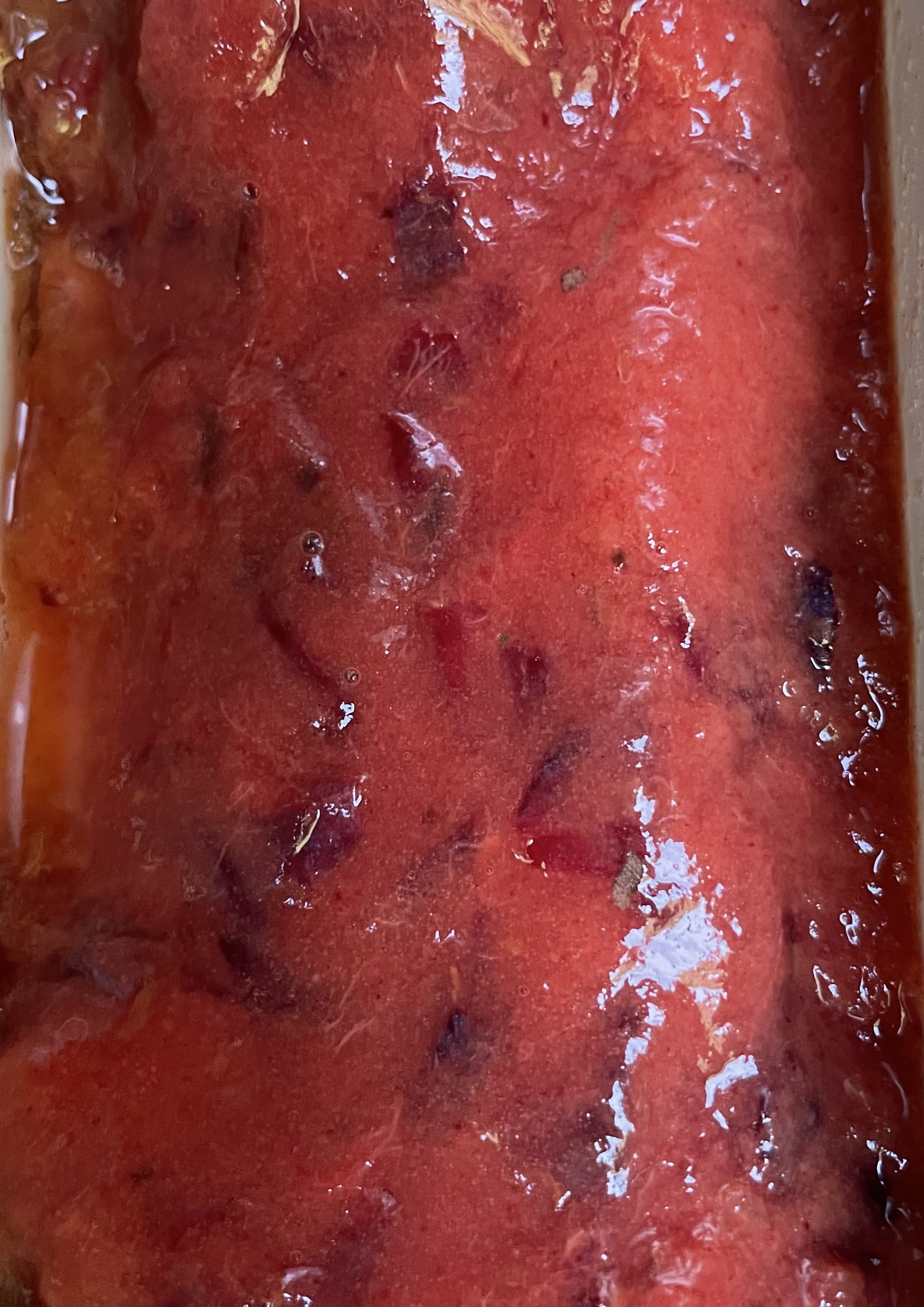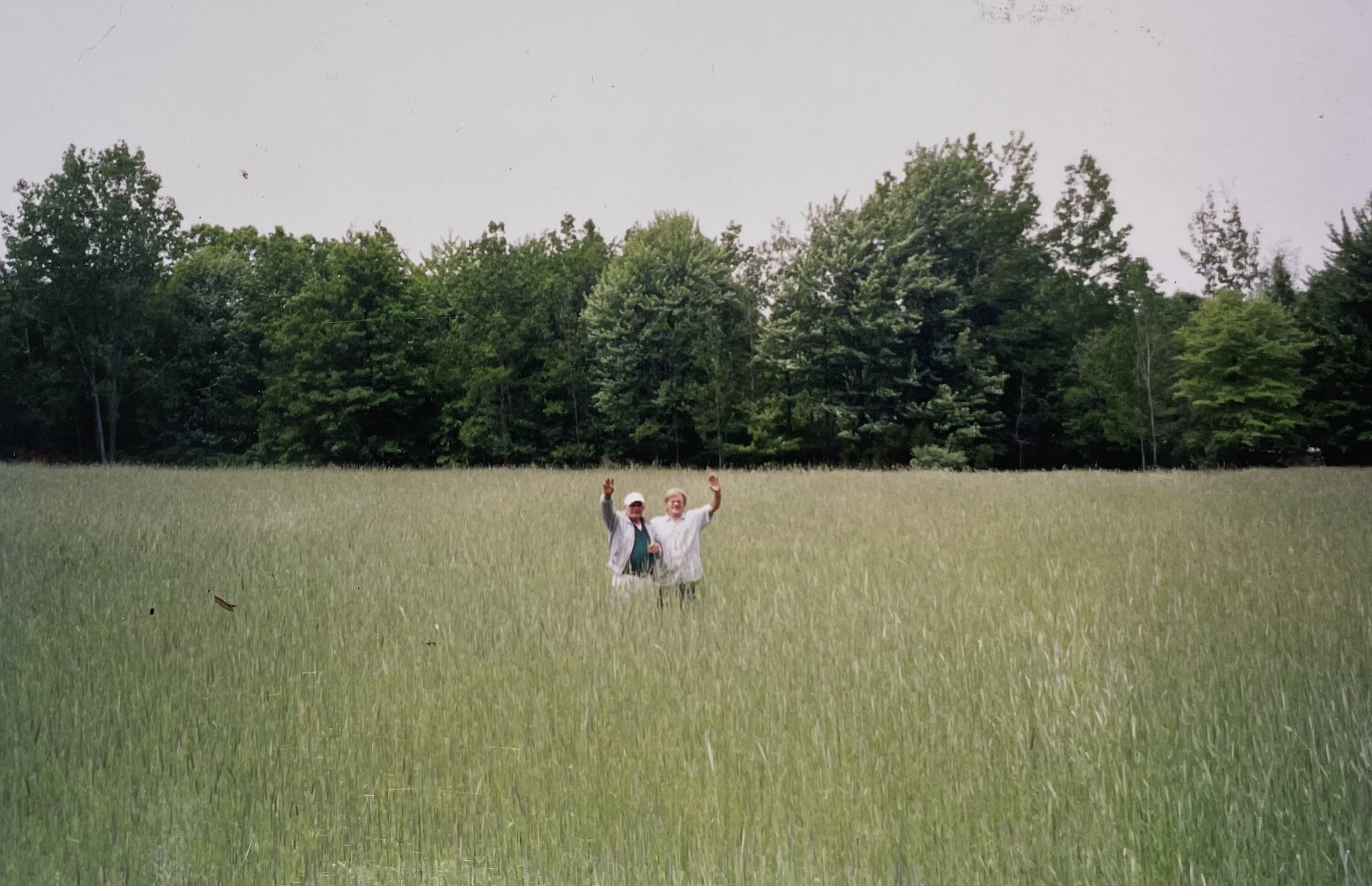


"Red Planet" represents a new variety of plum found as a natural hybrid of two indigenous North American plums, beach plum and American plum called Prunus dunbarii. I spotted this selection as a seedling in a bed of what would be 'pure' beach plums grown from seed at my farm. It was found in a bed of several thousand seedlings. It stuck out due to its leaf structure and growth. I planted it out in my open field to find that it grew rather slowly at first. This tree got engulfed in grass until eventually with a little care and pruning the tree grew as a single trunk with a fan shaped top. The flowering was prolific after 7 years of growth and the small fruits began to yield in great numbers. Today 'Red Planet' is a natural dwarf growing to 6 to 8 ft. tall with heavy fruit set every year. The fruits are very much like the beach plum but more significantly more tart. They make a fantastic red jam or sauce and in many ways the flavor is very much like beach plum.
"Red Planet" is completely free of insects and diseases. The small red fruits ripen starting in mid August and are done within two weeks. This tree type beach plum with strong upright growth would make it easier to commercially grow beach plums using shakers to harvest. Plus the stems and trunk are longer lived going past the twenty year mark. Very little suckering has occurred with this variety.
Scions can be requested with an order of its seeds. Scions are sent dormant in January or February.
Germinating the Seeds: Seeds normally sprout in one season of dormancy. Apply cold and moist treatment for 90-120 days. Use lightly moist Canadian peat moss and store in the refrigerator 33-38F or directly plant outside in the fall. Seeds can be planted 1/2 inch deep. The seed produces a top slowly at the same time the root is produced. Sometimes a portion of the seed will require a second dormancy meaning another warm period prior to applying a second cold period.
| Plant Specs |
| Genus & Species |
Prunus maritima x americana |
| Seed Source |
Michigan |
| Hardiness |
-30F |
| Height (ft) |
8-10 ft. with equal width |
| Pollination Requirements |
Self fertile. Will cross pollinate beach and American plums. |
| Soil |
Best in dry sandy soils or shallow soils with low organic matter. |
| Climate |
Zone 3- Dry and windy climates ideal! |
| Ease of Cultivation |
From seed or cloned this is a good selection for tart fruit easier to grow than tart cherries. Creates a clone that spreads slowly outwards on its own roots. Can be grafted onto beach plum or American plum but best if on its own roots if possible. |

